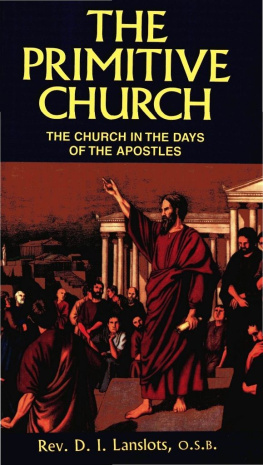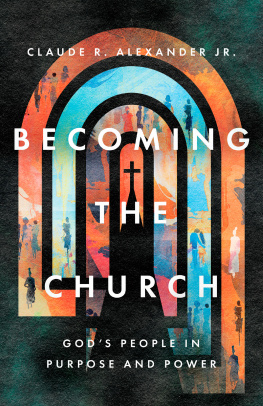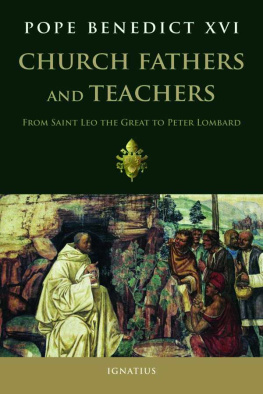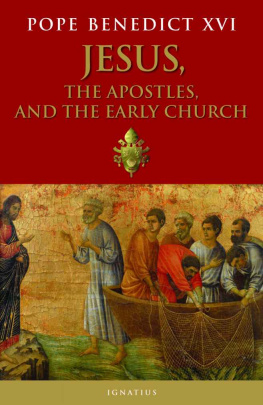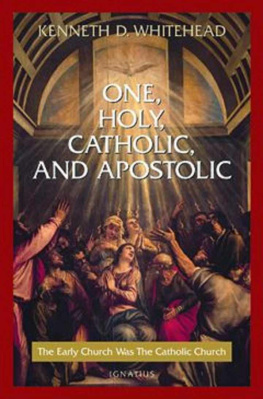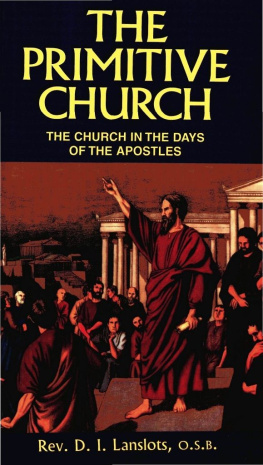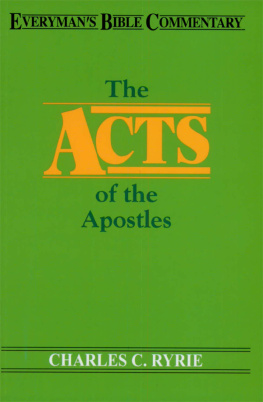Rev. Fr. D. I. Lanslots - The Primitive Church: The Church in the Days of the Apostles
Here you can read online Rev. Fr. D. I. Lanslots - The Primitive Church: The Church in the Days of the Apostles full text of the book (entire story) in english for free. Download pdf and epub, get meaning, cover and reviews about this ebook. year: 2015, publisher: TAN Books, genre: Religion. Description of the work, (preface) as well as reviews are available. Best literature library LitArk.com created for fans of good reading and offers a wide selection of genres:
Romance novel
Science fiction
Adventure
Detective
Science
History
Home and family
Prose
Art
Politics
Computer
Non-fiction
Religion
Business
Children
Humor
Choose a favorite category and find really read worthwhile books. Enjoy immersion in the world of imagination, feel the emotions of the characters or learn something new for yourself, make an fascinating discovery.
- Book:The Primitive Church: The Church in the Days of the Apostles
- Author:
- Publisher:TAN Books
- Genre:
- Year:2015
- Rating:3 / 5
- Favourites:Add to favourites
- Your mark:
- 60
- 1
- 2
- 3
- 4
- 5
The Primitive Church: The Church in the Days of the Apostles: summary, description and annotation
We offer to read an annotation, description, summary or preface (depends on what the author of the book "The Primitive Church: The Church in the Days of the Apostles" wrote himself). If you haven't found the necessary information about the book — write in the comments, we will try to find it.
The Primitive Church: The Church in the Days of the Apostles — read online for free the complete book (whole text) full work
Below is the text of the book, divided by pages. System saving the place of the last page read, allows you to conveniently read the book "The Primitive Church: The Church in the Days of the Apostles" online for free, without having to search again every time where you left off. Put a bookmark, and you can go to the page where you finished reading at any time.
Font size:
Interval:
Bookmark:
The Primitive Church
The Church in the Days of the Apostles
D.I. Lanslots, O.S.B.
IMPRIMI POTEST
Die 29. Dec. 1925 ,
Ernestus Helmstetter, O.S.B .
Abbas B. M. Immac. et Prs. Congre. Amer.-Cass .
NIHIL OBSTAT
Sti. Ludovici, die 17. Maii, 1926 ,
Joannes Rothensteiner
Censor Librorum
IMPRIMATUR
Sti. Ludovici, die 20. Maii, 1926 ,
 Joannes J. Glennon, D.D ,
Joannes J. Glennon, D.D ,
Archiepiscopus
Originally published by
B. Herder Book Co., St. Louis, Missouri
Copyright 1926 by B. Herder Book Co.
Copyright 1980 by TAN Books and Publishers, Inc.
Library of Congress Catalog No.: 79-67862
All rights reserved. No part of this book may be reproduced or transmitted in any form or by any means, electronic or mechanical, including photocopying, recording, or by any information storage or retrieval system, without permission in writing from the publisher.
TAN Books
Charlotte, NC
www.TANBooks.com
1980
PREFACE
BY
T HE R IGHT R EV. F RANCIS C. K ELLEY, D.D.,
B ISHOP OF O KLAHOMA
The man who has inherited a noble name and lives up to it, even though miserably poor in the goods of this world, loves to dwell upon the first heroic gestures with which his line began. The farther he can trace back that line, the more satisfaction and joy does he bring to his study.
Here is a history that tells of the first heroic gestures of what may well be called the Miracle of Christianity's Spread, the first circlet on the tiara of the Church after her ennobling at Pentecost. As members of that Church this is a story we should love and cherish, because it is the story of the beginnings of the line of our spiritual ancestry.
Joubert said that "Religion makes it the duty of the pauper to be liberal, noble, generous, and magnificent in charity." The Church has conferred that nobility on her followers, which is one of the reasons why she changed the face of the world. No one can read the record of her first seventy years without marvelling at the wonder of them in their accomplishments. It is like seeing a statue take form under the hands of the artist.
Here the artist was Charity; but Charity released from the bonds that confined her to one race and given the freedom of the Gospel of Jesus Christ. Poor as were the preachers of Christ crucified, they had His religion, and through it they were liberal, noble, generous, and magnificent with the Charity that is alike the inspiration of the Church and her treasure. The story told in this book is the Peerage of Christianity, its joy and its pride; as well as our own urge to emulate the Apostolic hunger for conquest in Christ's name.
CONTENTS
INTRODUCTION
The period of the Church's history of which this book treats, seems to have a special attraction for our contemporary scientists of all shades. Civil and religious origins are as a field unexplored, appealing especially to modern science: the origin of Christianity and its development are no exception. After Christ had consecrated His teaching with His blood, the Church existed, but to have her fulfil the mission entrusted to her, meant the long and generous work of the Apostles, guided and assisted by the superior power of the Holy Ghost. It is almost impossible to understand Christianity rightly without considering its origin and early development. As embryology is the basis of good and sound physiology, so does the origin of a thing help the study of its development. The problem of the natural or the supernatural of a religion cannot be solved without research into its beginning. The difficulties and obstacles encountered and overcome in the beginning of Christianity furnished our ancient apologists one of their most convincing arguments in favor of its divinity. The activity of Renan and the unbelieving rationalists of our day is aimed especially at undermining the first and second century of Christianity, which period seemed somewhat neglected by our ancient apologists, probably for the reason that it was supposed to be well known. As error in religious matters always invites the attention of the right-minded and brings out the truth, the rationalists have forced Catholics and sincere Protestants alike to reaffirm and to prove the principle of the supernatural. The followers of Strauss and Baur do not consider so much the personality of Christ as the activity of the Apostles in itself and in its consequences. Facts well established must convince even a rationalist; while he may not admit the supernatural, he must give up many of his prejudices. Unbelief is the misfortune, not merely of those who claim that the human mind has no limits and that reason will find some time a natural explanation of any fact, but also of those who admit these false theories without argument or enquiry.
The present-day attitude on the part of many men of so-called science, who follow in the steps of their rationalist confrres, as also the attitude of society in many quarters, is under many respects very similar to what it was when Christianity came to reform and transform itthe worldlow morality, the same confusion of ideas, the same hostility to the Church, who is denied not only the rights she claims, but even the rights of any society duly organized. The Church of all times and places feels the need and at the same time the intrinsic power to adapt herself to circumstances; in the face of a world turning to paganism, she realizes the obligation of asserting herself apostolic for self-preservation. She therefore recalls to mind the early days of her existence and the wonders worked by her heroes. The history of the Apostolic Age, from the first Christian Pentecost up to the death of St. John, reveals the Church as the divine Founder left her, and as the Apostles divinely inspired applied the teaching of their Master to the multifarious conditions of society, high and low, at that time.
No one can reasonably lay claim to the name of Christian if his belief and practice have little in common with the teaching of the Apostles. They preached the one faith; the believer in the Bible as the inspired word of God, or even a good philosopher, could not admit more than one faith in matters of religion. God cannot contradict Himself; He cannot but reveal the same identical truths when He addresses them to many.
After admitting that Christ is God, and that His Church will endure up to the end of time, the conclusion cannot be denied that the Church now must be in all essentials the same as she was in the days of the Apostles. The Christian society in the days of the Apostles was one; if any one disagreed with it in matters of faith, he ceased to be a member. There are hundreds of Christian denominations now, all claiming membership in that society, but their claim is absurd because faith is one. With the help of divine Revelation concerning the teaching of the Redeemer, and with the application of that teaching by the Apostles, as recorded in their inspired acts and writings, and with the further assurance that heaven and earth shall pass away, but that Christ's words shall not pass away, any unbiased enquirer after the truth would discover what the standard of present-day faith and morality should be. The history of the Primitive Church must reflect itself in the present-day Church, if it is to be considered the continuation of the Primitive Church. This makes that history of supreme importance to all that lay claims to the name of Christian.
T HE A UTHOR
THE PRIMITIVE CHURCH
CHAPTER FIRST
THE CHURCH A PERFECT SOCIETY IN ITS OWN RIGHT
T HERE are two powers recognized and established by God for the government of the worldthe civil and the religious or ecclesiastical. Some persons are endowed from above with power to govern the commonwealth and to promote the temporal welfare of its citizens; and others to rule the Church of Christ and to procure the spiritual welfare of all mankind. Each of the two powers is supreme in its own right. Does the Church hold her powers of government from the civil authority? Did the Founder of Christianity Jesus Christgive authority over it to the civil power? Did the faithful give it? Is the supreme civil authority such that all spiritual matters are subjected to it? Do the peace and prosperity of the commonwealth demand that all authority be concentrated in the civil ruler? The true answers to these questions should settle the relationship between Church and State. If it had been Christ's intention to give to the civil powers authority over His Church, He would have prepared these powers for the task in the same way as He trained His Apostles; He certainly could have done so; but there is not one word nor any indication on Christ's part to that effect. For the first three hundred years there were no temporal rulers, to whom the destinies of the Church could have been entrusted; the Roman emperors were deadly enemies of the Christian religion. The fact that they were not Christians was not an obstacle; the Apostles were not Christians when Christ called them to the apostolate. If Christ had wished to entrust His Church to the tender care of temporal sovereigns, He would have called and instructed them.
Next pageFont size:
Interval:
Bookmark:
Similar books «The Primitive Church: The Church in the Days of the Apostles»
Look at similar books to The Primitive Church: The Church in the Days of the Apostles. We have selected literature similar in name and meaning in the hope of providing readers with more options to find new, interesting, not yet read works.
Discussion, reviews of the book The Primitive Church: The Church in the Days of the Apostles and just readers' own opinions. Leave your comments, write what you think about the work, its meaning or the main characters. Specify what exactly you liked and what you didn't like, and why you think so.

